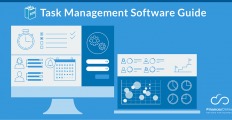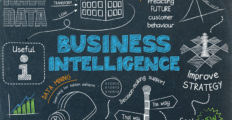The sales cycle in business-to-business (B2B) transactions is often much longer than business-to-consumer (B2C) ones. This is arguably because of the higher value of the transactions and the longer-term commitment involved.
Not to mention the drafting, negotiating, and execution of contracts, which then need to be constantly monitored for non-compliance or expiration clauses. Traditionally, contract management was a process fraught with challenges and time-consuming tasks.
Today, with the help of artificial intelligence (AI), it is becoming much more streamlined, offering a transformative solution to B2B agreements. Read on to find out how AI can introduce smooth workflows in your contract lifecycle management (CLM) processes and give your business the edge while reducing legal risks.

What Is AI-Based Contract Management?
AI-based contract management in B2B transactions is the process of using AI tools for extracting data and insights from contracts, drafting, summarizing, reviewing, automating workflow management, analyzing clauses and metadata, organizing bulk documents, assessing contract risks, providing pointers for negotiations, routing smart approvals, and ensuring data security and confidentiality, among others.
AI in contract management uses natural language processing (NLP), machine learning (ML), predictive analytics, and optical character recognition (OCR), among others. It not only has the potential to speed up processes but also mitigate organizational risks.
Apart from this, AI in contract management is influenced by constantly changing regulations, a rise in security threats, stricter governance, influences of globalization, greater responsibilities, and digitization.
In addition to this, some the reasons why AI is becoming so important in streamlining CLM today include:
- An average Fortune 2000 company maintains between 20,000 and 40,000 active contracts at any given point. (PricewaterhouseCoopers)
- Creating a basic contract can cost an average of $7,000, reaching higher than $50,000, depending on complexity. Meanwhile, reviewing and processing low-complex agreements can cost as much as $6,900.
- Poor contract management can cost companies up to 9% of their annual revenue. (World Commerce & Contracting)
- Harvard Business Review (HBR) has found that firms can lose between 5% and 40% of the value of a specific deal due to contracting.
- Around 56% of CEOs believe AI will drive greater business competition and 80% of executives anticipate that AI will impact their bottom line in the next five years. (2024 AI in Contracting Report)
Benefits of AI-Powered Contract Management in B2B Agreements

According to McKinsey & Company, AI can automate more than 50% of contract review and management-related tasks. Furthermore, because CLM solutions can shrink the contract drafting and reviewing process by up to 80% , more than 55% of legal professionals either intend to or already use generative AI. But there are many other essential elements of using AI in B2B agreements and contract management. Let’s take a closer look.
- Efficiency and speed: With its intelligent and sophisticated abilities, AI can automate contracts in the drafting and approval processes. Other aspects that can be automated to speed up processes include initial contract classification, categorization, and meta information extraction (e.g. dates, parties, financial obligations, etc.). In turn, this can lead to faster negotiation cycles that are optimized for more favorable terms.
- Enhanced compliance and risk mitigation: AI can be trained to monitor clauses and regulatory requirements in real time. It can also send automated alerts for non-compliant terms. It can also flag any clauses that may have unfavorable consequences. By analyzing historical data and identifying patterns, it can also flag potential non-compliance issues.
- Cost savings: Using AI tools in B2B contract management can reduce administrative overhead. Plus, it can minimize legal and compliance-related costs. Meanwhile, McKinsey & Company has found that because 70% of contract review tasks can be automated, important cost savings will be a natural result. In addition, AI can be used to recommend changes to pricing in agreements, enabling organizations to negotiate better prices and terms.
- Improved accuracy and consistency: Legal and related business intelligence and sales teams can utilize AI for error detection and correction. Furthermore, it can create standardized contract templates for more consistency across organizational contracts and heightened accuracy. Also, because of AI’s ability to process vast amounts of data, it can extract key insights from contracts such as boilerplate language, pinpoint inconsistencies, and carry out sentiment analysis.
- More informed decision making: Decision makers can now use AI to track key metrics and performance indicators using AI tools that offer insights and analytics. This can help them make informed decisions by identifying trends, optimizing processes, and improving the overall contract management strategy. Through predictive contract modeling, AI algorithms can also tap into large pools of historical contract data. This data can be used to predict future contract outcomes, such as potential disputes, ideal negotiation strategies, etc.
Challenges to Consider
Despite all the promise that AI offers for B2B contract management, it’s not without its flaws. Here are several that you should be aware of when using it in your agreement drafting or review process:
AI struggles with ambiguity
It’s possible that contract language is nuanced in some cases, with multiple possible interpretations. Context plays a key role here and AI may struggle to deal with subtleties.
AI can be inaccurate
Whether it’s misinterpreting data or making mistakes, it’s essential to carry out thorough reviews by professionals before making decisions or signing on the dotted line.
AI can be biased
Biases can be inherited from data fed to the AI, especially during training. These biases can be conscious or unconscious and manifest themselves in the final output.
AI can hallucinate
While AI is quite advanced, it can at times generate outputs that seem possible but that do not make sense or are actually incorrect. Extreme vigilance is advised and all information should be verified before drawing any conclusions based on output generated by AI.
AI may not always guarantee privacy and data security
Vendor contract information is usually highly sensitive and any breaches or unauthorized access can lead to data loss and reputational damage. Hence, choosing an AI that offers robust protection against cyber threats is essential.
The Future of AI-Powered Contract Management
Implementing AI in B2B contract management is a fine balancing act. And the future of AI is just unfolding before us, holding so much potential.
In fact, what is expected in the AI-contract management space are important developments that will streamline processes even further, with greater accuracy, transparency, and efficiency. This shift parallels the move from traditional to online consulting as firms adopt digital solutions to meet evolving client needs.
Below are a few trends in this field worth keeping an eye out for:
- Integrations of AI with other enterprise systems such as CRM, ERP software, etc.
- Advances in cognitive computing
- Natural language generation for automated drafting
- Predictive analytics for contract performance
- AI-driven negotiation assistants and automated negotiation support tools
- NLP is becoming more user-friendly and accessible, reacting better to nuances in human language
- Augmented intelligence for more informed and strategic business decisions
- Advanced risk prediction models
- Rise of explainable AI (XAI), enhancing the need for transparency and explainability
- Creation and facilitation of personalized and self-executing contracts
Conclusion
In summary, AI has immense benefits and transformative potential in contract management.
Businesses operating in the B2B space, managing dozens, hundreds, or even thousands of contracts can save a lot of time, resources, and money by implementing effective AI solutions in the contract creation and review process, and even beyond. This has also led to the emergence of many other AI tools for consultants and B2B service providers.
AI can also contribute to more efficient, compliant, and profitable business relationships and should therefore be a key consideration for decision-makers in an increasingly competitive and dynamic space.























Leave a comment!